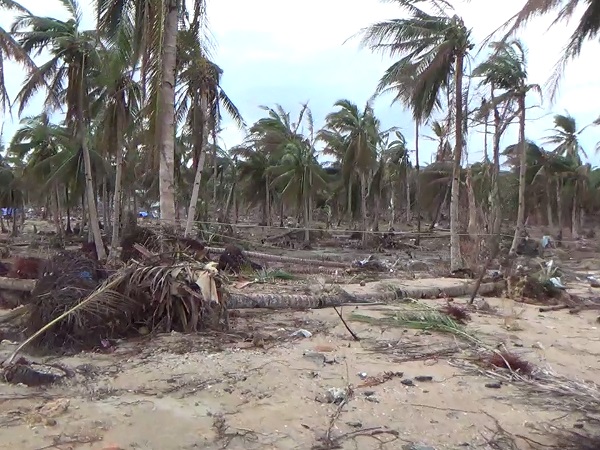P688M in coconut farms rehab deals given sans bidding–COA

Photo by RYAN LEAGOGO/INQUIRER.net
The Philippine Coconut Authority (PCA) awarded P688.7 million in supply contracts for the rehabilitation of coconut farms affected by Supertyphoon “Yolanda” and the coconut scale insects without a public bidding, according to the Commission on Audit (COA).
One of the companies that obtained a P38-million project from the PCA is owned by a fraternity brother of the now resigned presidential assistant for food security and agricultural modernization, Francis Pangilinan, who exercised administrative supervision over the PCA.
In its 2014 audit report, the COA questioned why the PCA officials did not conduct a public bidding but decided instead to enter into negotiated contracts by invoking the emergency mode of procurement under Republic Act No. 9184, the Government Procurement Reform Act.
The COA, however, found that the delivery of the some of the items purchased was delayed, “defeating the purpose of emergency procurement.”
“Significant requirements under RA 9184 were not fully observed in the procurement of goods and services… [There is] no assurance that the availed prices were most advantageous to the government,” the COA said in the audit report that was released last Friday.
Article continues after this advertisementA scrutiny of documents submitted by the contractors showed various “documentary and procedural deficiencies” which, the COA said, was “an indication that the bids and awards committee (BAC) and other officials concerned lacked sufficient awareness or knowledge [of] the procurement process.”
Article continues after this advertisementOne of the companies that supplied the pesticides to stem the infestation of coconut scale insects (locally called cocolisap) in coconut plantations across the country was LEADS Agricultural Products Corp.
The Mandaluyong-based agrochemical company is owned by Fernando B. Malveda, a member of the Upsilon Sigma Phi fraternity of which Pangilinan is also a member.
Among the violations cited by the state auditors was the failure of the PCA to come up with a project procurement management plan and annual procurement plan before awarding the projects.
The agency also failed to write down a report of its pre-procurement conference with the suppliers, making it impossible to know what the PCA officials and the contractors had discussed, according to the COA.
Absence of recommendation
In addition, the COA said the PCA did not present any resolution from the bids and awards committee explaining the need for an emergency purchase, which included the procurement of tractors, chainsaws, fertilizer and vegetable seeds.
“The necessity of opting for emergency procurement could not be established due to the absence of a BAC recommendation and the approval of the head of the procuring entity,” it said.
The state auditors said the suppliers also did not submit such required documents as a mayor’s permit, tax clearance, abstract of bids and net financial contracting capacity to show their financial capability to undertake the projects.
“No observers were invited to any of the procurement stages, thus transparency could not be assured to have been attained,” the COA said.
To prevent a repeat of the violations in the future, the COA asked the PCA to order all bids and awards committee members and the officials concerned to attend a seminar on the government procurement law “to safeguard the resources of the government.”
It also recommended the possible imposition of sanctions against the PCA personnel concerned.